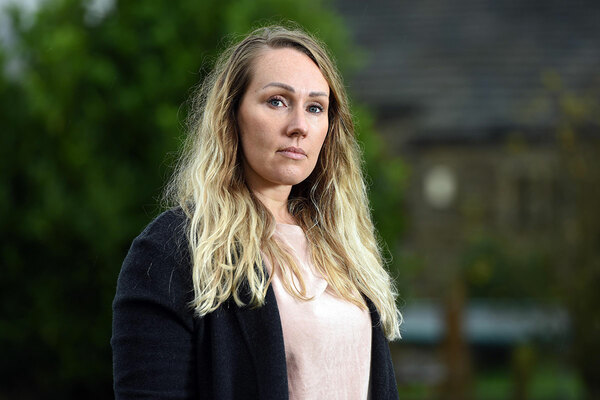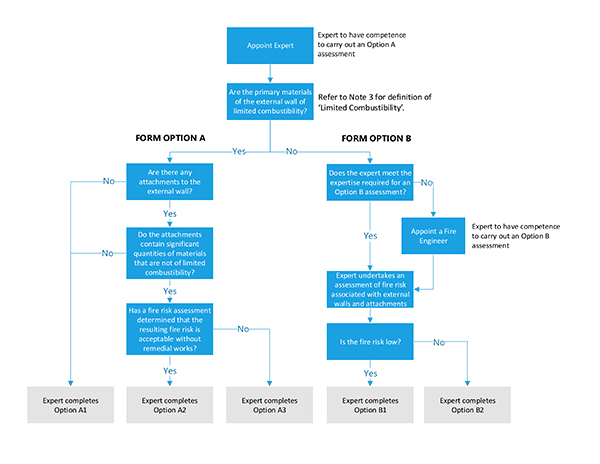Industry bodies agree new process to overcome Advice Note 14 issues and avoid £0 valuations
The Royal Institution of Chartered Surveyors (RICS) and a number of other sector bodies have today agreed a new sector-wide valuation process aimed at overcoming issues around government advice on combustible materials that is currently holding up the sale of thousands of homes in high-rise buildings.
The new process, which has been agreed with UK Finance and the Building Societies Association (BSA), will require buildings to be checked by professional fire safety experts, who will then be able to assess the materials being used on the external walls of buildings and provide lenders and valuers with assurances about whether the building is safe and properties can be valued.
The new agreement is in response to thousands of apartments becoming unsellable due to Advice Note 14, the government’s advice around combustible materials on high-rise flats other than aluminium composite material.
In December 2018 the government published the advice note, which called on owners of buildings taller than 18m to check for combustible materials in the external wall systems of their stock and remove the materials if found.
The guidance has led to a number of issues for leaseholders, including sales of properties being cancelled and sellers having their properties valued at £0 if unable to provide evidence that the external wall system complies with Advice Note 14.
This has adversely hit housing associations. The G15, the body representing London’s largest housing associations, has estimated that up to 650 families living in their blocks have been unable to sell and mortgage their properties.
The new External Wall Fire Review process looks to get around the issues with Advice Note 14 by giving competent professionals the power to give advice about the safety of a building’s external wall system and valuers with assurances that buildings do not require remediation and can be valued.
It requires building owners to appoint a competent fire safety professional to carry out a review and give the building an EWS certificate.
If the building is found to have no combustible materials, this will then be reflected in the certificate and lenders and valuers will be able to give the homes within the block a valuation. The new certificates will be accepted across the housing sector.
EWS certificates last for five years.
If the fire safety expert finds that the materials on the external wall system are not of limited combustibility, the building owner will then have to appoint a fire safety engineer who will have to carry out a more intrusive investigation to decide whether remediation is needed on the block.
If it is decided remediation is needed, this will still mean that apartments in a given block will likely be given £0 valuations or valuations well below the market value, until remediation is complete.
A number of blocks with combustible materials, such as high-pressure laminate (HPL) and timber cladding, would still likely need to be remediated because of Advice Note 14 calling on building owners to remove these materials.
Inside Housing has spoken to a number of leaseholders whose flat sales have fallen through as a result of being unable to secure Advice Note 14 certification. The National Housing Federation and the G15 have previously called for clarity and the need for action to “unstick the process”.
Above: RICS, BSA and UK Finance’s External Wall Review Process for building owners of buildings above 18m with external cladding
John Baguley, tangible assets valuation director at RICS, said: “To unclog areas of the market, a qualified and experienced fire safety expert will be appointed by the building owner to provide a report on the building’s cladding, and associated wall system, as an additional part of the valuation process. This will ensure safety, and will also ultimately allow the high-rise property market to function properly.”
“RICS have worked with stakeholders across industry and [the Ministry of Housing, Communities and Local Government] to jointly create a standardised approach between valuers and lenders that will ease current issues in the high-rise property market.”
Charlie Blagbrough, mortgage policy manager at the BSA, said: “This new industry process is the result of substantial consultation across the housing industry and government. It takes into account the range of external wall materials that are in use on apartment buildings and will now be used industry-wide.
“Ensuring the safety and security of those selling, purchasing and living in high-rise homes remains paramount. However, we expect that this new process will instil confidence to enable surveyors to value, lenders to lend, and ultimately keep the high-rise property market flowing.”
Helen Evans, Chair of the G15 and Chief Executive of Network Homes said: "I’m pleased the new government has acted and is supportive of the work done by RICS, the G15 and others within the industry to unstick the mortgage market on tall buildings.
"There are thousands of leaseholders across the country affected by this uncertainty and I hope this goes some way to clarifying the situation for them.
"But we also need further support from the government on their confusing guidance and being open to funding solutions, otherwise many leaseholders will still be left with unaffordable bills, while housing associations’ building capacity will be reduced."
Housing Secretary Robert Jenrick MP said: “Resident safety is of the utmost priority and building owners should follow expert advice and ensure that any building safety and fire risks are identified and fixed as a matter of urgency.
“I welcome industry’s solution to manage valuations and lending on high-rise residential buildings, which will enable people to get on with buying and selling their homes.”














